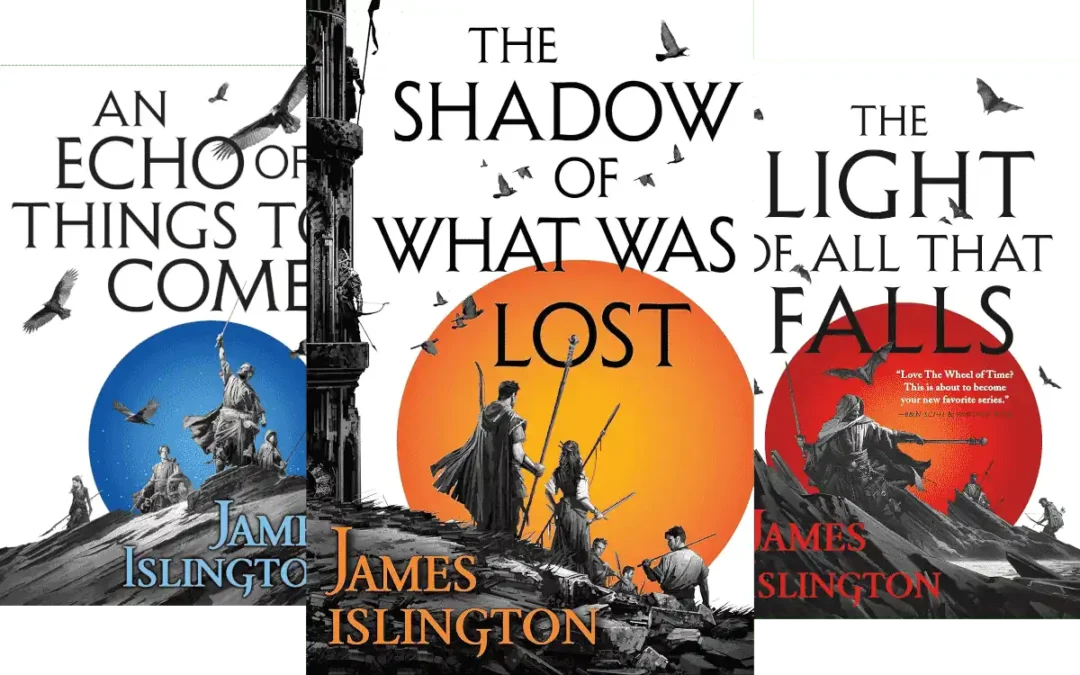Everyone has a darker nature, Caeden. Everyone. Good men fear it, and evil men embrace it. —Wirr
The Licanious Trilogy by James Islington has it all: energy magic, mind reading, mind control, time dilation, time travel, magical constructs, immortality, philosophy, religion, politics, war, love, hate, secrets, escape, magical creatures …
Reading these books feels like reading Brandon Sanderson. They’re expansive. They’ve got loads of characters—each one unique and driven by motivations that make sense. The story covers the breadth of a continent and the span of four thousand years.
Unfolding the Story
The magical boundary that holds back the armies of evil is failing. The monsters will come, but few believe. Circumstances gather, split, and scatter four friends across time and space. Each faces perilous adventures, sometimes intertwined, sometimes tangential, but each one critical to challenging the enormous threat to humanity.
One of them must unite a divided kingdom against the coming dangers.
One must rouse a latent people to power.
One must regain lost memories to learn, not only how to win, but which side he’s on.
One must become the prophesied hero of the world.
The lesser of two evils, or the greater good. Get a good man to utter either of those phrases, and there is no one more eager to begin perpetrating evil. —Asar
Examining the Themes
Themes are plentiful in the Licanious Trilogy. Yet they are woven seamlessly into the fabric of the story through character action and interaction.
- The line between good and evil
- Overcoming great personal loss
- Acting in the midst of faith and doubt
- Ends vs. means
- Man versus God in a struggle over fate versus choice
Every theme is deeply explored in the natural unfolding of the story. At times, the themes are overt, other times, they are subtle, but they’re never forced. And characters never break from who they are to preach to the reader.
While Islington is quick to express a wide range of beliefs through his characters, he is slow to draw hard conclusions on which are right. Not that he doesn’t, but he’s slow to, which invites readers to think for themselves. Under many layers of dialog, action, events, and world-building, a Judeo-Christian worldview lies buried for the reader to unearth.
The people with whom we are friends should never affect our morality; rather, our morality should affect with whom we are friends.
Reflections
I enjoyed the turns in the story. Over and over, events would twist in ways I didn’t expect, which was fun and kept me guessing.
The characters, too, were unique, varied, and interesting. My favorites were Davian, Caeden, and Asha.
As with any hugely expansive epic, it can be hard to keep track of all the characters. I recommend binge reading it so everything is fresh from book to book.
The last book, unfortunately, has plot holes. Apparently, Islington’s original plan for the story would have made the book way to long, so he left a lot out. He plans to write a whole extra book to fill these plot holes, but as of this post, he’s not officially announced when this book may come.
It’s not enough to fight for the right side. You have to figure out how to fight the right way, too.—Davian
Will You Like It?
This book is for you if you:
- Enjoy expansive epic fantasy like that of Brandon Sanderson.
- Like intricate magic systems.
- Like various monstrous races.
- Want fiction that not only carries you to another world, but makes you think about your own world.
- Are okay with a promised future book to fill the plot holes.
If that sounds good to you, check out The Licanious Trilogy →
